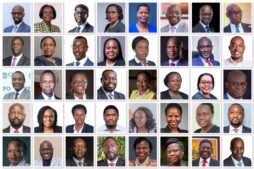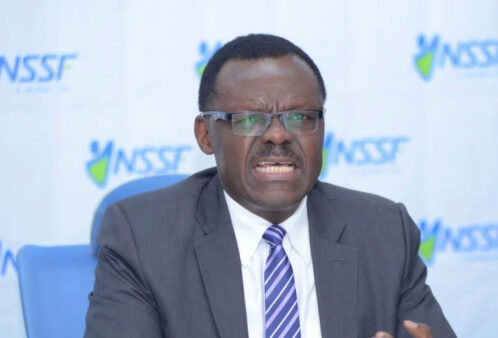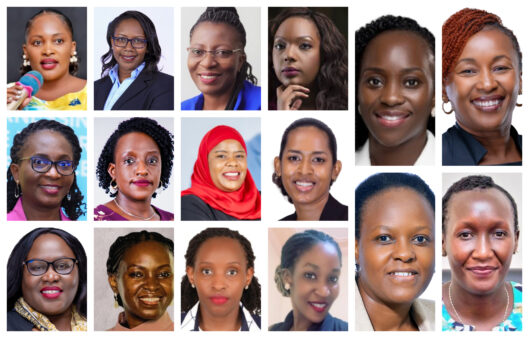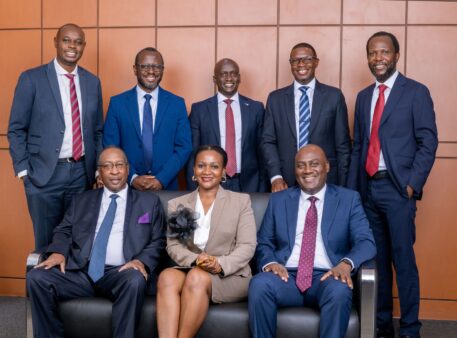
The Court of Appeal has handed South African lender Vantage Mezzanine Fund II a decisive legal victory in its high-profile dispute with Ugandan businessman Patrick Bitature and his Simba Group of companies, dismissing a raft of applications and appeals filed by Bitature’s side.
In a landmark pronouncement with wider implications for foreign investors, the court held that foreign partnerships without a physical place of business in Uganda are not required to register locally in order to sue or enforce contracts in Ugandan courts.
The ruling came in Civil Appeal No. 263 of 2022, where the Court of Appeal overturned a High Court decision that had struck out Vantage’s judicial review application on grounds that it was a non-registered foreign partnership with “no legal presence” in Uganda.
Justice Esta Nambayo, delivering the lead judgment, found that registration requirements under Uganda’s Partnership Act and Business Names Registration Act apply only to local partnerships or foreign partnerships actually “carrying on business” within Uganda.
“A foreign lender who advances a loan facility to a local company or person without establishing a place of business in Uganda cannot be said to require registration under Ugandan partnership law,” Justice Nambayo ruled, adding that lending from abroad does not amount to “carrying on business” for purposes of the Acts.
The court also criticised what it saw as procedural unfairness: Simba Group companies had previously sued Vantage in Ugandan courts without objection to its legal capacity, only to challenge that capacity when Vantage sued them. Calling this “approbating and reprobating,” the court held it would be unconstitutional to deny Vantage equal access to justice.
The Court of Appeal further found that the High Court had erred in joining private Simba companies to a judicial review application aimed at compelling the Uganda Registration Services Bureau (URSB)—a public body—to perform its statutory duty of registering share transfers in favour of Vantage.
These private parties, it held, were wrongly joined in proceedings that concerned the actions of a public authority.
A series of defeats for Simba Group
The capacity ruling was the only bright spot for Vantage in a week that otherwise saw the Court of Appeal dismantle multiple legal maneuvers by Bitature’s companies aimed at stalling enforcement of an International Chamber of Commerce (ICC) arbitral award.
In six related applications—including Civil Applications Nos. 231 of 2025, 232 of 2025, 537 of 2022, 1230 of 2023, 1295 of 2023, and Civil Reference No. 006 of 2022—the Court of Appeal dismissed Simba Group’s bids to:
- Extend time to file or validate notices of appeal.
- Obtain temporary injunctions blocking sale or transfer of mortgaged properties.
- Seek leave to appeal interlocutory High Court orders.
- Maintain interim protective orders previously issued by a single Justice.
- Avoid costs and procedural sanctions.
In each case, the panel of Justices Egonda-Ntende, Luswata, and Nambayo ruled that the High Court orders under challenge arose from disputes governed by the Arbitration and Conciliation Act (ACA). Section 9 of the Act expressly prohibits court intervention in arbitral matters except where specifically provided, meaning no right of appeal lay in law.
Related
 CEO-Ready: Uganda’s Rising Business Leaders to Watch in the Next 5 Years
CEO-Ready: Uganda’s Rising Business Leaders to Watch in the Next 5 Years
Citing the precedent of Babcon Uganda Ltd v Mbale Resort Hotel Ltd—upheld by the Supreme Court—the Court of Appeal concluded that it lacked jurisdiction to entertain appeals or grant interim relief in such matters.
The stakes: a multi-million dollar loan and mortgaged assets
At the heart of the dispute is a 2014 Mezzanine Term Facility Agreement (MTFA) under which Vantage advanced a multi-million-dollar loan to Simba Properties Investment Co. Ltd, Simba Telecom Ltd, Linda Properties Ltd, and Elgon Terrace Hotel Ltd. The loan was secured by mortgages over prime properties and share transfer documents signed in advance.
After default, Vantage moved to enforce its security, triggering a wave of litigation from the Simba Group in Uganda’s Commercial Court aimed at stopping the transfers.
In June 2021, the High Court referred the disputes to arbitration under the ICC rules. Vantage subsequently sought to register the share transfers with URSB, but the bureau declined, prompting Vantage’s judicial review case.
The latest Court of Appeal rulings significantly tilt the legal battlefield in Vantage’s favour. By reaffirming Vantage’s legal capacity and stripping away Simba’s avenues for appeal, the court has cleared obstacles to the enforcement of the ICC award in Uganda.
Implications beyond the Bitature-Vantage fight
The finding that foreign partnerships do not need local registration to lend or enforce debts in Uganda could have wide commercial ramifications.
It reassures foreign lenders and investors that they can operate cross-border financing transactions without first establishing a physical or registered presence in the country, so long as they are not “carrying on business” locally in the statutory sense.
It also reinforces the autonomy of arbitration as a dispute resolution mechanism, limiting the scope for parties to relitigate arbitral matters in Ugandan courts except where the ACA expressly permits
Paul Murungi
Paul Murungi is a Ugandan Business Journalist with extensive financial journalism training from institutions in South Africa, London (UK), Ghana, Tanzania, and Uganda. His coverage focuses on groundbreaking stories across the East African region with a focus on ICT, Energy, Oil and Gas, Mining, Companies, Capital and Financial markets, and the General Economy.
His body of work has contributed to policy change in private and public companies.
Paul has so far won five continental awards at the Sanlam Group Awards for Excellence in Financial Journalism in Johannesburg, South Africa, and several Uganda national journalism awards for his articles on business and technology at the ACME Awards.
- @https://x.com/paulmurungiug
- Send me an email!
Related Stories

High Court Orders NSSF to Disclose UTL Pension Contributions in Landmark Insolvency Ruling

Mobile Phone @30: Women Breaking Barriers and Redefining Leadership in Uganda’s Telecommunications Sector

SM & Co. Advocates (Formerly Shonubi, Musoke & Co) Stages Coup de Firm on Signum Advocates

From Shonubi, Musoke & Co. Advocates to SM & Co.: Honouring a 38-Year Legacy, Reimagining the Future of Legal Practice in Uganda
You May Also Like
CEO-Ready: Uganda’s Rising Business Leaders to Watch in the Next 5 Years
U.S. Courts Museveni to Deepen Commercial and Trade Ties with Uganda
Standard Bank Group Reshuffles Regional Leadership: Oigara Succeeds Mweheire as East Africa Chief, Francis Karuhanga to Lead South & Central Africa
How Foreign Exits are Opening Opportunities in East Africa’s Stock Markets
Related posts
Meet the Author

Gillion is a multi-concept WordPress theme that lets you create blog, magazine, news, review websites. With clean and functional design and lots of useful features theme will deliver amazing user experience to your clients and readers.
Learn moreCategories
- Africa (12,123)
- Business (562)
- Design (3)
- East Africa (739)
- Guide (7)
- Interior (1)
- Life (1)
- Lifestyle (5)
- Motivation (4)
- People (3)
- Photography (2)
- Rest of Africa (731)
- Review (1)
- Science (72)
- Style (1)
- Travel (5)
- World (173)
Subscribe Now
* You will receive the latest news and updates on your favorite celebrities!



